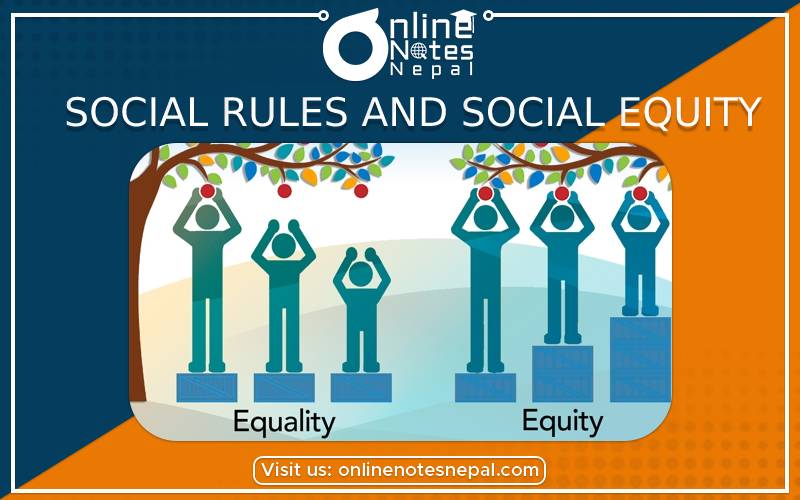Published by: Nuru
Published date: 25 Jan 2022

Social rules are the most human social activity that is organized and regulated by socially produced and reproduced systems of rules. Social rules are the set or pattern of behaviors expected to be followed by everyone as a member of society. They are used to examine all levels of human interaction. They are different from those that are enforced by law. If these rules are not followed properly, then society and social life will have to face various disasters. So, social rules are the guidelines for each individual member of society.
Human agents such as individuals, groups, organizations, communities, and other collectivities produce, carry, and reform these systems of social rules, and this frequently takes place in various ways. Social rules are not compulsory behaviors. They are rather optional. Even if the person does not follow social rules, the person is not liable to any punishment under the law. For example, a person is not supposed to sit in front of the elders by folding his/her legs. However, no laws state any punishment for not respecting the elders.
Similarly, the couples are not allowed to stay together until they get married. Well, I just remembered the saying of my teacher to the college guys wearing earrings. He usually used to say "I also like to wear the earrings, but our society doesn't accept it. So, stop wearing earrings in the college or change the society." There are certain things that society doesn't accept and we must follow the social rules of society because we have to stay in this society. Social rules must be learned from childhood. When the kids don’t follow social rules, others may think they’re self-centered or uncaring. Other kids may find their behavior annoying and back away because society expects discipline, manners, modesty, cooperation, and civility from its members.
Social rules are also important in normative and moral communications about social actions and interactions. Social rules also require that a person should help those members of society who are weak, poor, and incapable of helping themselves. The social rules also require that a person should not differentiate in terms of language, culture, caste, and others. Because society consists of different people with different religious, linguistic, traditional, ethnic, and cultural backgrounds respecting such differences is also a part of the social rule.
The interpretation and implementation of social rules are universal in human society, for the reformulation and transformation. Social rules also demand that the person should give high preference to social interest than his/her personal interest like helping one another, cultivation of cooperation, friendliness, and participation in social functions.
Our country Nepal is home to different races of people with their unique customs, religions, traditions, and cultures. They can be utilized as the property of the country. However, we people are discriminated against and treated unfairly in our country. There must be social equality in our society as well as in the country. Social equality in a society is the social state of affairs whereby all the people in the society have equal rights under the law, including physical security, freedom of speech, the right to own property, and to protect it. The Interim Constitution of Nepal 2072 (2015) has guarantees rights to everyone.
There will not be any discrimination against any citizens in discharging the general laws. The state shall not discriminate among citizens on grounds of origin, sex, gender, race, age, sexual orientation, origin, caste or class, income or property, language, religion, convictions, opinions, health, etc. It means that the judgment of the state should be passed to all citizens on equal terms. It also includes equal opportunities and obligations and so involves the whole of society.
In our society, inequality committed or promoted in the name of caste, descent, community, occupation or race are punishable under the laws. Discriminatory/inequality practices do not promote progress and prosperity in society. Such practices hinder the growth of personality, affect the moral health of the community, and retards the development of the whole nation. A morally healthy society discourages all kinds of discrimination and each member of such society work for the elimination of unhealthy practices.
Social and economic inequality increases the power and importance of social hierarchy, status, and class. As a result, a long list of problems is more common further down the social ladder, much more common in societies with larger income differences between rich and poor. Here, different films and songs are published for the social equality and elimination of such discrimination practices.
Our famous singer Deepak Limbu has rightly sung the song "Manche manche eutai ho ni farkera kina vo? Dharma chalne, sipa chalne, paani nachalneho?" This song really touches the human heart. The man-made traditional discrimination practiced in our society is the root cause of inequality. So, we must eliminate discrimination, victimization, and other prohibited conduct from society. Equal opportunity should be provided to all the citizens of the country. There must be brotherhood, sisterhood, and good relations among the people.
All kinds of discriminatory practices are barriers for the people to contribute to the development of a society and a country. Inequality is emerging as a central issue for the post-2015 development agenda and the establishment of sustainable development goals should be promoted. Peace, prosperity, progress, and happiness can be brought in society only by discouraging evil practices. Social equality can be established by promoting education, conducting various awareness programs, and making people respect human beings, respect human rights and regard human dignity. Social equality activists work to bring about equality for all people in society.